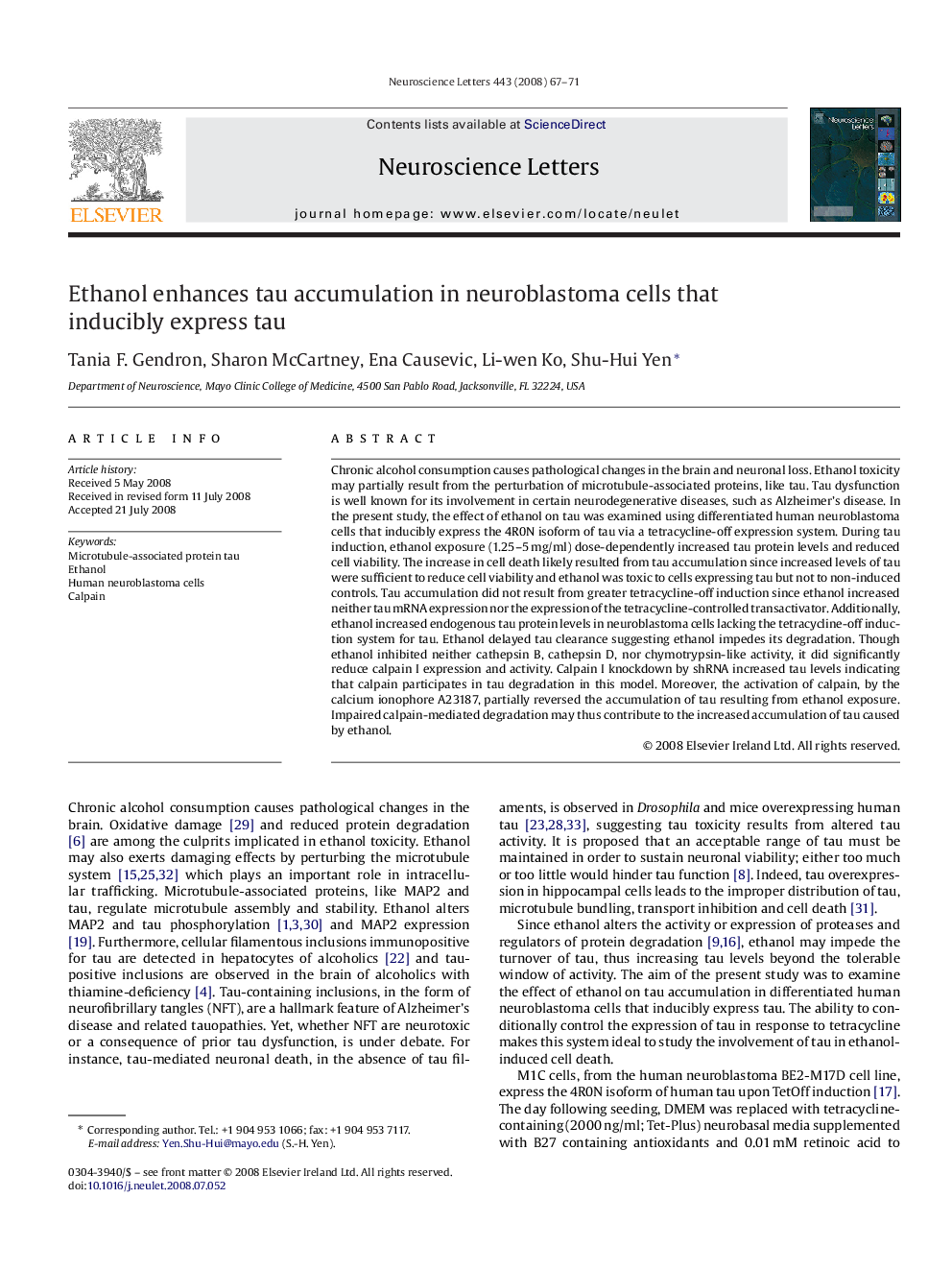| کد مقاله | کد نشریه | سال انتشار | مقاله انگلیسی | نسخه تمام متن |
|---|---|---|---|---|
| 4347765 | 1296859 | 2008 | 5 صفحه PDF | دانلود رایگان |

Chronic alcohol consumption causes pathological changes in the brain and neuronal loss. Ethanol toxicity may partially result from the perturbation of microtubule-associated proteins, like tau. Tau dysfunction is well known for its involvement in certain neurodegenerative diseases, such as Alzheimer's disease. In the present study, the effect of ethanol on tau was examined using differentiated human neuroblastoma cells that inducibly express the 4R0N isoform of tau via a tetracycline-off expression system. During tau induction, ethanol exposure (1.25–5 mg/ml) dose-dependently increased tau protein levels and reduced cell viability. The increase in cell death likely resulted from tau accumulation since increased levels of tau were sufficient to reduce cell viability and ethanol was toxic to cells expressing tau but not to non-induced controls. Tau accumulation did not result from greater tetracycline-off induction since ethanol increased neither tau mRNA expression nor the expression of the tetracycline-controlled transactivator. Additionally, ethanol increased endogenous tau protein levels in neuroblastoma cells lacking the tetracycline-off induction system for tau. Ethanol delayed tau clearance suggesting ethanol impedes its degradation. Though ethanol inhibited neither cathepsin B, cathepsin D, nor chymotrypsin-like activity, it did significantly reduce calpain I expression and activity. Calpain I knockdown by shRNA increased tau levels indicating that calpain participates in tau degradation in this model. Moreover, the activation of calpain, by the calcium ionophore A23187, partially reversed the accumulation of tau resulting from ethanol exposure. Impaired calpain-mediated degradation may thus contribute to the increased accumulation of tau caused by ethanol.
Journal: Neuroscience Letters - Volume 443, Issue 2, 3 October 2008, Pages 67–71